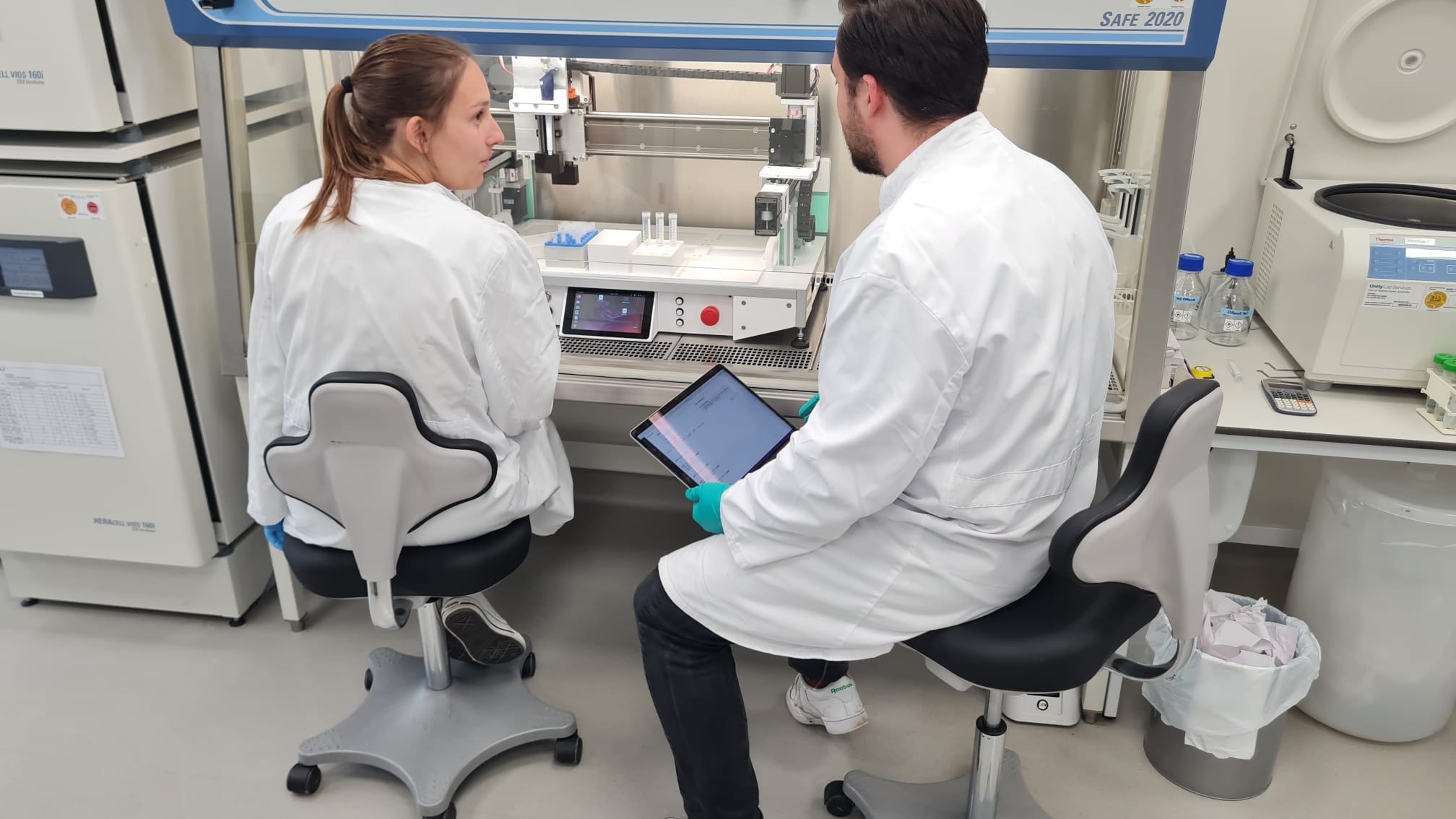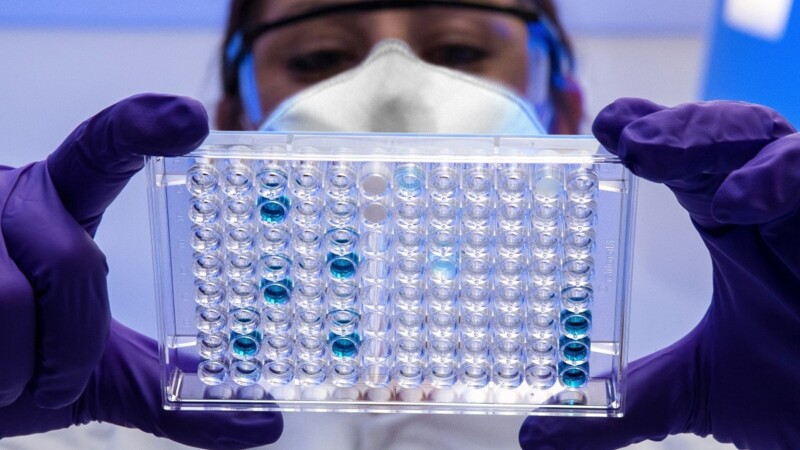The term "attachment" refers to the right combination of cells containing the particular disease for which new medication is being developed. If the starting cell is taken from a patient, the tiny organ has that person’s individual characteristics. "This enables the development of tailor-made therapies and brings us a huge step closer to the goal of personalised medicine," Gaats stressed. And the tiny organs can ease the complex and lengthy approval process. Gaats cites the example of a new Parkinson's therapy. "The preliminary phase of clinical trials can be carried out on our tiny organ. The basic quality, safety and efficacy of the new medication must be verified and be without serious side effects before it can be tested on human volunteers." The approval process in Germany generally requires animal testing. Around 1.73 million animals were subjected to tests in Germany in 2022, according to Statista.
The Hamburg-based biotech start-up mo:re is aiming to make medication development swifter, safer and cost-effective and entirely without animal testing. "We are developing a laboratory robot that builds tiny organs," said Lukas Gaats, joint founder of mo:re. "Artificial intelligence is used for validation. It reinforces the genetic analysis and ensures that our tiny organs develop optimally." This approach won over the jury of the GründerGeist award last October and saw the company scoop first prize in the Young Entrepreneurs' (Wirtsschaftsjunioren) start-up competition and EUR 10,000 in prize-money. The tiny, artificially-grown organs are used to test active ingredients of new medication and without killing a single mouse. The tests are based on stem cells from which all organs can develop. "We are now concentrating on the heart, liver and brain," said Gaats. "A heart is the size of a sesame seed, but has all the characteristics of a mouse. And just a few days after 'attaching' our heart, the organ beats all by itself."
Aiming for personalised medicine

Robots replacing human hand
"Our business model is more ethical, meaningful and cost-effective," said Gaats. Standardised robotic organ development yields precise results. "The robot replaces the human hand and works faster and more accurately than a human being. We want to ease the workload on researchers. We cannot have highly-trained people moving liquids from A to B for hours on end." And the mo:re process is faster. "Mice have to grow and develop the required clinical pictures. Our tiny organs take two weeks before they can be used. However, the duration varies depending on the organ with a brain taking 100 days. We do not build the whole brain, but rather the sections on which the disease docks." The longer wait is worthwhile, said Gaats. "A kind of blood-brain barrier in the human body protects the brain from toxins, but it also fights medications, making studies on human beings less reliable. Our tiny brains do not have this barrier," said Gaats, who has a master's degree in medical engineering from TUHH and an MBA from the university's NIT where he met co-founder David Hackenberger. "As an automation engineer, David is responsible for the robots backed by Philipp Depperschmidt, who also studied at TUHH. Our start-up is a classic spin-off.”

Hopes of eradicating animal testing
Gaats spent a sabbatical year doing research in Australia, which was key to setting up the company. "I was a research assistant to Professor Dietmar Hutmacher at the Queensland University of Technology, and we realised the commercial potential of automated cell culture while researching tiny organs." On his return to Hamburg, mo:re successfully applied for EXIST start-up funding, backed by TUHH's Startup Dock, and the team grew. Júlia Vallverdú Ginès, a biologist with a PhD in Medicine and Translational Research, is responsible for selecting and assembling the cells. The start-up has also moved into the Startup Labs Bahrenfeld, a joint innovation centre of DESY, the City of Hamburg and the University of Hamburg in Science City Hamburg Bahrenfeld. "We benefit from state-of-the-art equipment, access to laboratories and workshops and work in a motivating environment with committed people. This is a unique offer for an early-stage start-up," said Gaats, adding: "I stand for the company's vision of making animal testing obsolete. I'm responsible for the commercial side and liaising with customers and investors.”
Surging interest in legislation
And it comes at exactly the right time. Efforts are currently underway at EU level to reform pharmaceutical legislation to strengthen research in Europe. The effects are becoming increasingly apparent, according to Gaats, adding: "I have been travelling to pharmaceutical congresses for the past year and a half and have noticed that both interest and understanding of the issue have soared. Many companies are now looking for a solution like ours." However, mo:re's main target market is the United States. "The U.S. is pioneering the abolition of animal testing and is generally very open to innovation. But, of course, we are also interested in the European market. A French company has already purchased one of our robots." The company has thus taken the first step towards sales-based financing. The start-up is also funded by IFB Innovationsstarter GmbH’s InnoRampUp scheme, U.S. investors and business angels. "We are now in another seed round," said Gaats. All going well, the company will be one step closer to its goal of "making animal testing obsolete by 2035.” Animal testing will be banned in the U.S. from that year.
ys/mm/pb
Are you interested in more exciting news and information from the Hamburg startup ecosystem? Our partner portal Startup City Hamburg also provides a comprehensive overview of all funding programmes and services.
Sources and further information
More
Similar articles

Three promising fields of application for quantum computing


